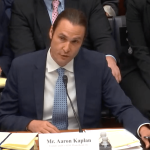The global movement against free trade and capitalism that burst into public consciousness at the 1999 protests against the World Trade Organization coalesced around the idea that Western elites had ensnared Third World nations in a debt trap to coerce them into adopting neoliberal policies.
When poor nations couldn’t afford to repay what they owed the World Bank and the International Monetary Fund (IMF), these Washington-based organizations agreed to restructure the loans of debtor countries, if they would agree to move in the direction of privatization, deregulation, and free trade—a policy agenda pejoratively termed “shock therapy.”
Leftist leaders like Hugo Chávez claimed that this was part of a pattern of elite subjugation of Latin America that stretched back to Christopher Columbus. He used it as evidence to support Venezuela’s turn toward Cuba-style socialism.
Columbia University’s Joseph Stiglitz, a former chief economist at the World Bank and a Nobel Prize–winning critic of free market capitalism, promoted the same narrative. He blamed the Washington Consensus for pushing policies he deemed too radical and wrongheaded to ever get through in the U.S.
Unlike Stiglitz, Alex Gladstein identifies as a classical liberal. The Human Rights Foundation, where he works as chief strategy officer, condemns socialist dictators like Chávez for their crimes against humanity.
Yet in his recent book Hidden Repression: How the IMF and World Bank Sell Exploitation as Development, Gladstein argues that the story told by the radical left about these two organizations is largely correct.
His work over the last few years has focused on “monetary colonialism,” in which the U.S. and European nations use their control of global currency to override the sovereignty of poor nations in Latin America and Africa. The fix, he says, is for the world to transition to bitcoin, a form of freedom money that no country or corporation can manipulate or control.
Reason sat down with Gladstein at the Miami Bitcoin Conference in May to talk about his new book.
Credits: James W. Prichard/ZUMAPRESS.com; James W. Prichard/ZUMAPRESS.com; Erik Castro / BlackStar Photos/Newscom; Jim Bryant / UPI Photo Service/Newscom; Jim Bryant / UPI Photo Service/Newscom
The post Was the Radical Left Correct About the IMF and World Bank? appeared first on Reason.com.






